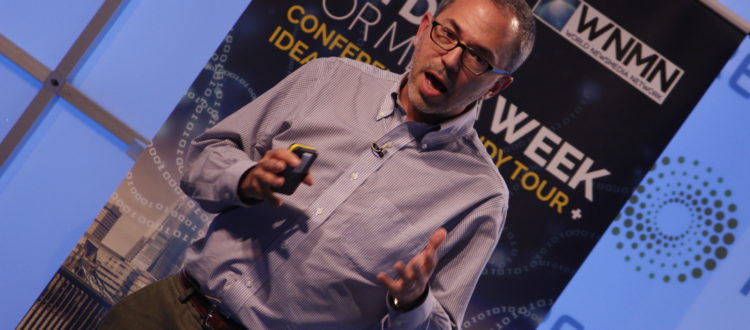Economist focuses on the right data, not the easy data
Kenneth Cukier, senior editor of digital products at The Economist, spoke on the company’s principles on how they deal with data at the 2017 Big Data for Media Week conference in London in February.
He shared some the four most important lessons the news media company has learned over the years.
- Beware of survivor bias, whereby data are excluded simply because they do not exist. The emphasis, he said, should be on getting the data you need and not the data that is easy to get.
- “You don’t want an answer right now, because if I give you the answer right now, it will be the wrong one,” Cukier often told his editor-in-chief when being asked to get data out as soon as possible. In selecting the right data, it is important to keep in mind the fundamental truth trying to be found:
- What is truly happening?
- What does The Economist truly care about?

Acknowledge that Big Data is a new “science” that most people still do not have the answers to. It should be viewed as a process of discovery. Some of the important discoveries The Economist has encountered by adopting this mindset while looking at Big Data include:
- On Twitter, images attract clicks.
- On Facebook, less is more. The longer your caption to a certain news link, the less the clicks will be.
- The launch of its weekend edition thanks to analysing data on Espresso.
- The importance of Web-friendly headlines.
Learn to spot abnormalities and analyse the data to ensure there has not been any reporting mistake.
Learn to trust your data, but continue to verify them, or what is known in Russian as doveryai no proveryai.
Cukier then summarised The Economist’s principles on Big Data:
- To not blindly follow data — but do not be blind to the data either
- To provide timely answers to real business needs to improve performance for long-term value.
- To remember the users own data; his team is the stewards. The team will never release findings without making the underlying data available to others to run their own analyses to produce alternative interpretations. There needs to be transparency and openness.
Looking at data is important, according to Cukier, because it is after all a tool the team can use to uphold its professional mission, i.e. being as meaningful to the readers as possible.
“It allows us to respect our readers,” Cukier said. “In the past, we couldn’t know readers’ preferences so we didn’t. But today we can, so we must.”
Serla Rusli is a business and financial journalism MA student at City, University of London. She can be reached serla.rusli@gmail.com.


